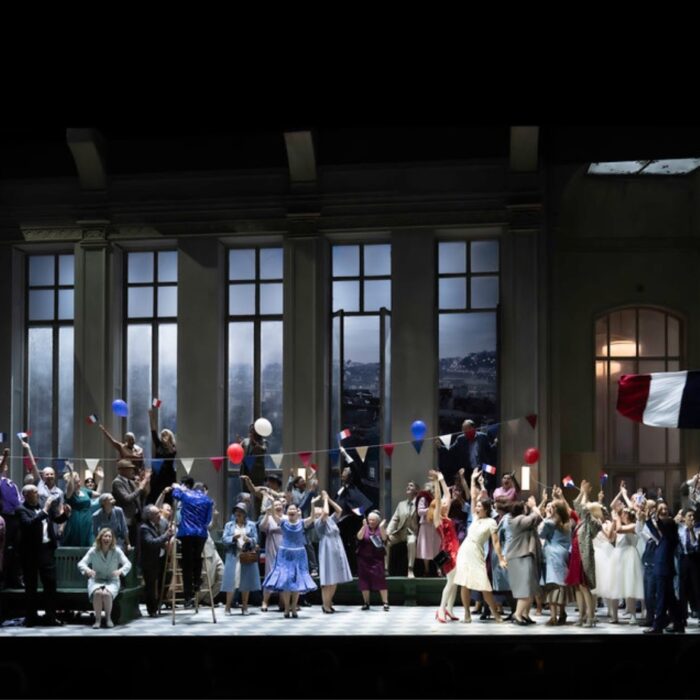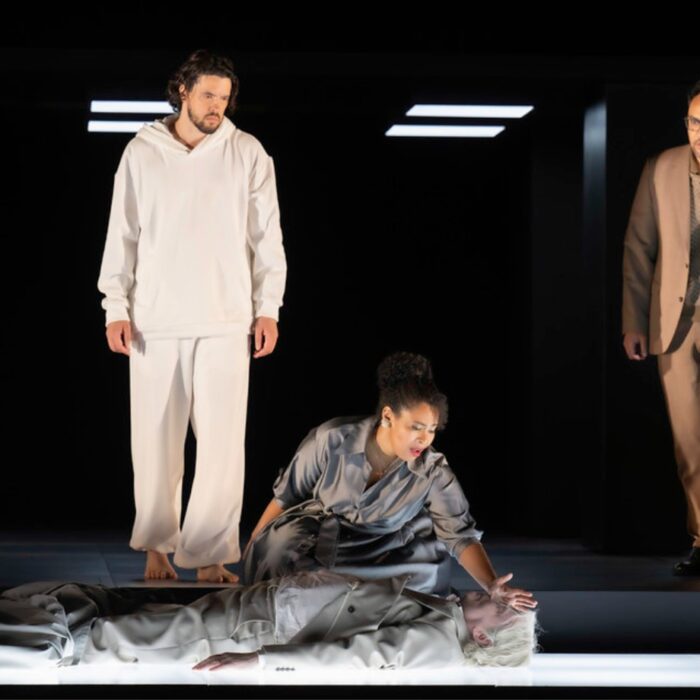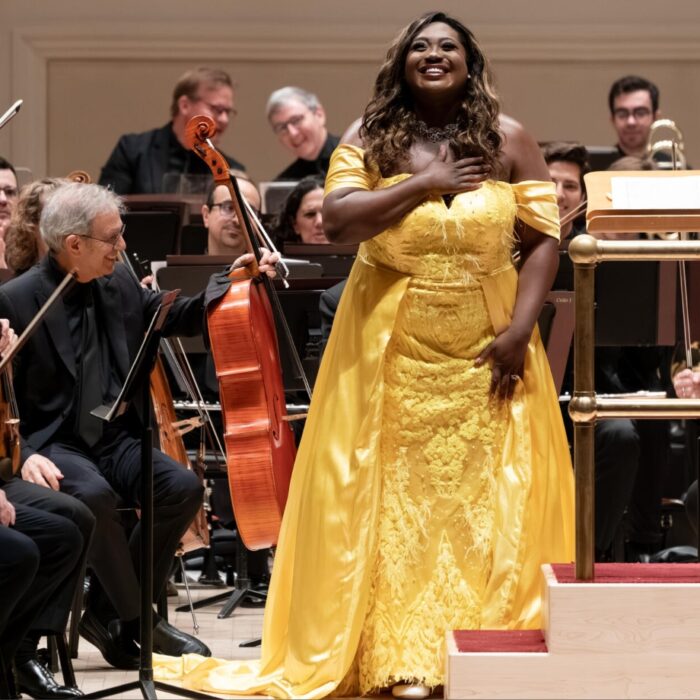
Opéra National de Lorraine 2025 Review: L’Elisir d’Amore
By Andréas Rey(Photo Credit: Jean-Louis-Fernandez)
From April 25 to May 3, Opéra National de Lorraine reprises Angers Nantes Opéra’s 2023 production of Donizetti’s “L’Elisir d’Amore.” A seemingly straightforward opera of great finesse, both in its orchestration and arias, it offers melodic treasures for connoisseurs. The Opéra de Lorraine orchestra, under the direction of Montpelier-born conductor Chloé Dufresne, performed with a sincerity that can only be appreciated. Despite playing very loudly, it forces the singers to push their voices, revealing their imperfections further. But it’s not from him that the production’s greatest frustration comes.
The main disappointment comes from the lack of finesse in the staging, which attempts to be truculent but often falls into excess and exaggeration. Paris-born director David Lescot chose to set the drama in a gypsy farming community. Thus, around the main drama written by Donizetti’s librettist Felice Romani, multiple scenes coat and weigh down the stage. In addition, the set is already very busy, with a grain silo here, a house with an attic there, and a wagon and carpet to separate the wheat from the chaff. While the transformation and use of these elements over the course of the drama help to make the show interesting, their sheer number sometimes risks overloading the stage. The staging even verges on bad taste at times, with the garlands of multicolored light bulbs, the candy pink of the bridesmaids’ dresses, the volume of Adina’s wedding gown and, above all, the fact that the Nemorinos are mocked by the community until they learn of their inheritance.
One good idea emerges from this very bold staging, however, namely the chorus’ constant gaze on Adina and Nemorino, making the latter both the arena and third-party actor in the drama. The attic house is thus equipped with a floor that allows the gaze to change, and the choir’s gaze will indeed change on Nemorino once he is heir to his deceased uncle. The Opéra de Nancy chorus, under the direction of its French conductor Guillaume Fauchère, has always been a major asset to this opera, and once again it lives up to its reputation for consistency and quality. However, like the orchestra, and no doubt to make himself heard, he sings very loudly, encouraging the singers to push their voices too, with results that are not always very conclusive. This almost crude thickness in the scenography is also reflected in the acting.
Sarassin-born tenor Matteo Desole seems almost to abuse his vis comica as the young lover, which starts out amusing, then slowly raises the question of whether this constant caricature, and hence lack of naturalness, serves to mask his lack of projection and vocal brilliance. Her aria “Una furtiva lacrima” lacks nostalgia, the dreaminess underlined by the bassoon and harp. An important moment, during which Nemorino is alone with himself to finally realize a common future with Adina, the singer is also laid bare, and his flaws with him. His duets with Spanish soprano Rocío Pérez as Adina also reveal the qualities and shortcomings of each. The soprano begins by lacking projection, too, being easily covered by the orchestra in the first act. In the second act, however, the dryness of her timbre comes to the fore, as in her aria “Una tenera occhiatina.” And her duet with Dulcamara at her wedding, though very pleasant and with an appreciable harmony between the two performers, does not really carry the day, due to the lack of sparkle and charm of the performers.
Belgian bass Patrick Bolleire plays a perfect Dulcamara as a small salesman with a smuggler’s charm, but precisely more charm, in what is hypnotic by words, would have been more appreciable from his aria “Udite, udite, o rustici.” The little man’s cunning is certainly there, amusing as can be, but he lacks the freshness to satisfy.
Bass-baritone Mikhail Timoshenko‘s Belcore, born in Timoshenko, Russia, shows the caricatured coarseness of the characters, being constantly in the pose. It’s a pity he needs time to reveal his voice. His initial aria “Come Paride vezzoso” sounds a little dull, and his vocal depth only comes with his “Il ciel ringrazia, o babbuino” at the end of the first act.
The only real performer who knows how to play her character without excess and with enough freshness is French soprano Manon Lamaison as Giannetta. Natural, simple, singing her arias like “Or Nemorino è milionario” without fuss, she would have made a delightful Adina. Could it be that she understands what this opera is all about, namely a light, fresh and subtle comedy, when this greasy, exaggerated staging constantly weighs it down?
Nevertheless, the audience, and especially the children, seemed to enjoy the show. So much the better, they’ll be back for a new production of Donizetti and maybe a finer “L’Elisir d’Amore.”



